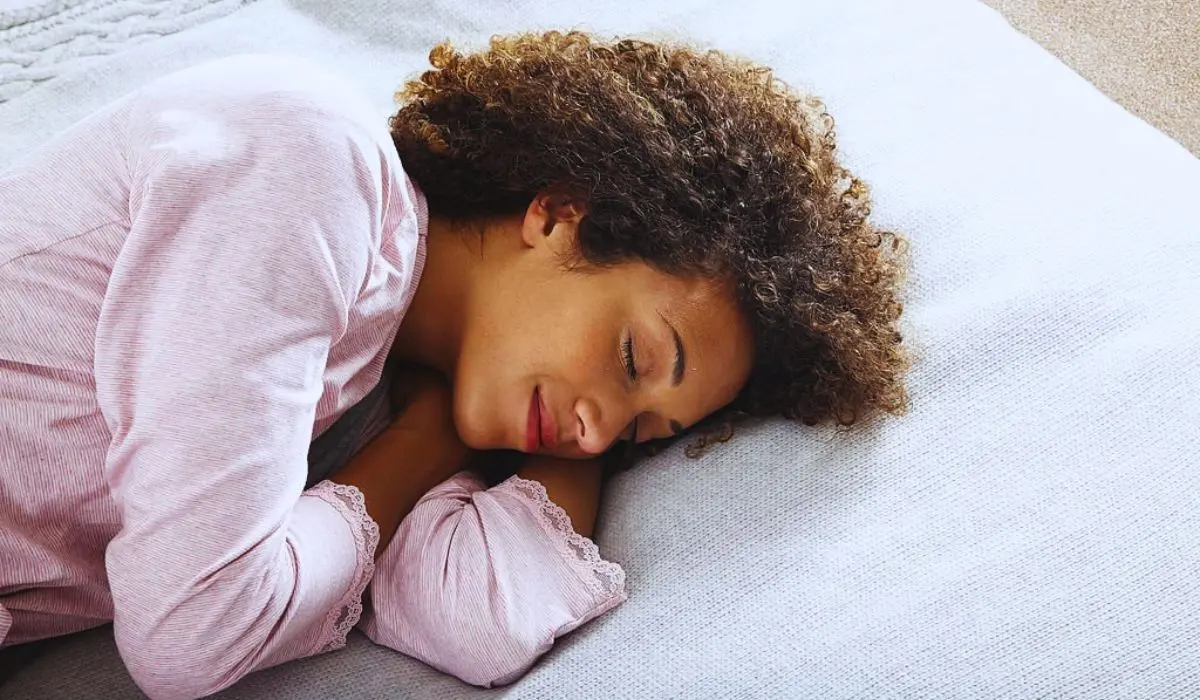No pillow, no problem? That’s the topic of debate between experts and sleep fanatics! Let’s dive into the potential benefits of sleeping without a pillow.
But before you ditch the pillow, consider your individual circumstances. Certain medical conditions may need special pillows. So check with a doctor or try different sleep positions to find what works best for you.
Who knows? You might just surprise yourself with the potential benefits of sleeping without a pillow. So why not give it a go and get ready for sweet dreams?
Benefits Of Sleeping Without A Pillow
To improve spinal alignment, reduce neck and back pain, and enhance blood circulation, sleeping without a pillow is a viable solution. By adjusting your sleeping position and eliminating the use of a pillow, you can experience numerous benefits.

✅ Improved Spinal Alignment
Sleeping without a pillow has numerous benefits, like improved spinal alignment. Our spine gets to rest in its natural position, reducing strain on the neck and back. Here are other advantages:
- Maintains the natural curve of the spine.
- Relieves neck pain.
- Improves overall posture.
- Enhances breathing.
- Promotes better circulation.
✅ Reduced Neck And Back Pain
Many people suffer from neck and back pain, but there’s an easy solution: ditching the pillow! This can actually reduce these ailments and improve spinal health. Here are some benefits of sleeping without a pillow:
- Aligning your spine naturally: Without a pillow, your spine can align more naturally while you sleep. This relieves strain on your neck and back.
- Improved blood flow: A pillow-free sleep increases circulation to your brain, reducing inflammation and tension in your neck and back muscles.
- No misalignment: Regular pillow use can lead to misalignment in the spine over time. Without a pillow, proper alignment is maintained and chronic pain or injuries are prevented.
- Stronger muscles: Surprisingly, sleeping without a pillow can strengthen your neck and back muscles. These muscles support your head throughout the night.
On top of these advantages, many people feel more energized and refreshed after a night without a pillow. Uninterrupted rest leads to better overall well-being.
To make the most of this method, here are some tips:
▶️ Take it slow: If you’re used to sleeping with a pillow, try a small or thin one first and reduce its use over time.
▶️ Get a supportive mattress: A firm mattress offers adequate support while keeping your spine aligned.
▶️ Pay attention to your position: When sleeping without a pillow, side-sleeping with one leg drawn towards your chest is ideal for alignment and minimal strain.
▶️ Exercise and relax: Stretch and do relaxation exercises daily to reduce tension and improve flexibility.
✅ Enhanced Blood Circulation
Sleeping sans a pillow can improve oxygen delivery, reduce pressure points, enhance waste removal, and even promote heart health. It also helps align the spine which in turn benefits overall health.
Drawbacks Of Sleeping Without A Pillow
To avoid potential drawbacks of sleeping without a pillow, consider the following: increased risk of snoring, potential neck strain, and discomfort for some individuals. Discover the effects of sleeping without this essential support and learn about the possible solutions to mitigate these difficulties.

⭕ Increased Risk Of Snoring
If you prefer sleeping without a pillow, there are potential drawbacks to consider. One major issue is snoring, which can ruin sleep and disturb your partner too.
Alignment: Sleeping without a pillow can cause misalignment of your head and neck; narrowing the air passages. This increases the risk of snoring.
Nasal Congestion: Without elevation from a pillow, nasal congestion can worsen. This can lead to blockage and breathing difficulty, leading to snoring.
Tongue Relaxation: Without a pillow, your tongue can relax and fall back into your throat, blocking the airway and causing vibrations in the throat that result in snoring.
Reduce the risk of snoring with these tips:
▶️ Sleep on Your Side: This prevents blockages due to tongue relaxation or misalignment.
▶️ Elevate Your Head: Use a rolled-up towel or blanket under your neck, or use a cushioned support for some elevation. This helps with nasal congestion and better airflow.
▶️ Maintain a Healthy Weight: Excess fat around the neck area can contribute to snoring. Exercise and a balanced diet can keep this in check.
⭕ Potential Neck Strain
Sans pillow, our neck can suffer. This lack of support causes strain, leading to discomfort and pain. Let’s look at key points:
- Incorrect alignment: Without a pillow, the head, and neck may not be in the right spot during sleep. This strains neck muscles.
- No cushioning: The pillow provides cushioning for the head and neck, reducing pressure on them while lying down.
- Inadequate support: Pillow-less, the weight of the head is unevenly spread, risking straining of neck muscles and joints.
Plus, no pillow affects blood circulation to the brain. The spine’s natural curve might not stay intact without support. This causes discomfort and long-term health concerns.
⭕ Discomfort for Some Individuals
No pillow, no problem? Not so! Prolonged discomfort can stem from sleeping without one. Neck muscles may be strained and the spine misaligned, leading to long-term issues. Pressure on the body parts like the shoulders and hips can cause poor circulation and numbness.
Investing in a supportive pillow is advised. Contoured memory foam and adjustable fillings provide comfort and customization. And don’t forget good sleep posture! Back or side is best; a pillow under the knees for the back, between the knees for the side; to keep the spinal alignment intact.
Conclusion
It’s clear that sleeping without a pillow can hold many health benefits. It lets your body rest in a more natural position and reduces stiffness, soreness, and the chance of developing back pain or herniated discs. Moreover, it boosts blood circulation to vital organs and muscles and can help with breathing.
To get the most out of it, it is best to:
- Phase out the pillow gradually.
- Pick a mattress with medium firmness.
- Practice relaxation exercises before bed.

